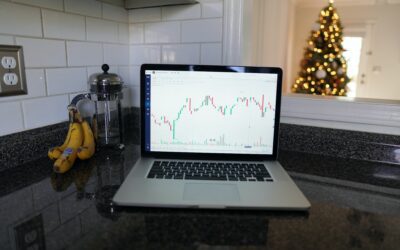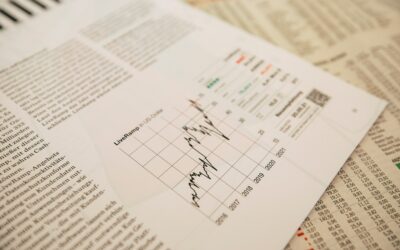How to Assess Your Financial Future in an Uncertain Economy
When things start shifting — high inflation, geopolitical conflict, unemployment, etc. — chatter about market volatility and economic downturn tends to intensify. But before making any changes to your current savings or investing strategy, here’s something to remember: All economies are uncertain, and nobody has ever been able to successfully predict the future.
Seeing economic uncertainty play out in the stock market or grocery store can be nerve-racking. Yet, you may be in a better position to “weather the storm” than you realize. Let’s take a look at when it’s important to review your financial plan and how to best prepare yourself and your finances for any economic climate.
Should You Review Your Financial Plan During Periods of Market Volatility?
A well-thought-out financial plan likely doesn’t need to be revisited or adjusted in the face of market volatility or economic downturn. The plan itself, when created and executed with the help of a knowledgeable financial advisor, is designed to anticipate and accommodate unexpected volatility. Why? Because volatile markets are, statistically speaking, a normal part of the economic cycle — meaning we anticipate them happening and we use statistical techniques to incorporate them into your plan. Though no one can predict with certainty when they’ll actually occur, we know they will occur, and we plan accordingly.
Just because volatility is normal doesn’t mean it won’t make you nervous as an investor. This is normal. Our brains go into fight or flight mode during periods of uncertainty. If you’d feel more comfortable having extra cash on hand or otherwise want to change your investment strategy, take some time to review your financial plan (ideally alongside your financial advisor).
By revisiting your plan, you may find reassurance in knowing you’ve already put safeguards in place to protect your desired future. Most of the time, changing strategies during a volatile market is a short-sighted mistake that can result in long-term losses.
What to Focus on When the Economy Feels Uncertain
Rather than making changes to your plan and/or strategy during periods of uncertainty, focus on your preparedness. If you were laid off tomorrow, for example, would you have enough in your income reserve to hold you over until a new opportunity comes along?
Having an income/cash/emergency reserve is critical, and it can help you feel more financially secure and confident during periods of economic uncertainty. How much you keep in your reserves is up to you, but as a general rule of thumb:
- At least six month’s worth of expenses for someone employed by a profitable and well-established company.
- At least a year’s worth of expenses for someone who is self-employed or working for a start-up or early-stage company.
- You might hold more if most of your liquidity is tied up in a single asset.
Along those same lines, you may want to consider the health and revenue steadiness of the company you’re working for (or considering working for in the future). During periods of economic growth, new companies have a better chance of flourishing and can offer tech employees impressive benefits. But these are the same companies that are most likely to suffer or downsize during a downturn.
When Should You Revisit Your Financial Plan?
Rather than focus too much on external factors, the most important time to revisit your financial plan is when something happens within your own life — especially if that event impacts your ability to save or invest.
For example, if you lose your job, take a pay cut, or your company foregoes bonuses this year, that would affect your savings plan.
Other impactful events could include:
- Having a child.
- Getting married or divorced.
- Caretaking for an older relative (or other dependent adult).
- Moving.
- Buying a second home.
- Planning to start a company.
- Buying out your partner(s).
- Allocating significant liquid assets to a private investment.
Anytime your financial situation is going to change, it’s time to check in with your financial advisor and review your plan carefully.
How an Advisor Helps You Make the Most of Uncertainty and Volatility
The truth is, your biggest hurdle to overcome is your decision-making. It’s natural to want to protect your money at all costs, even though the reality is that making impulsive, emotionally charged changes now can hurt your goals in the long run.
When you start to feel worried or anxious, acknowledge those thoughts. But rather than act on them, call your advisor. They can help you understand what safeguards are in place to protect you and your portfolio and remind you that economic downturns and market volatility are a natural part of the process.
Your advisor can also help you find opportunities. When you know what to look for, a stock market dip can sometimes be a chance to buy stocks at a bargain price. Historically speaking, the market has continued to trend upward since its inception — meaning it’s always recovered from a downturn. But if you “bail out” during what turns out to be a quick dip (note that a “quick dip” might be 10+ years when you have 20+ years to be growing your wealth, and we have seen periods of this duration in the US stock market), you may be paying more to reenter the market (once it recovers) than if you’d just stayed invested all along.
Need a guiding hand to help you navigate economic uncertainty? Reach out today to speak with our team.
This material is distributed for informational purposes only. Investment Advisory services offered through Journey Strategic Wealth, an investment adviser registered with the U.S. Securities and Exchange Commission (“SEC”). The views expressed are for informational purposes only and do not take into account any individual’s personal, financial, or tax considerations. Opinions expressed are subject to change without notice and are not intended as investment advice. Past performance is no guarantee of future results. Please see Journey Strategic Wealth’s Form ADV Part 2A and Form CRS for additional information.













